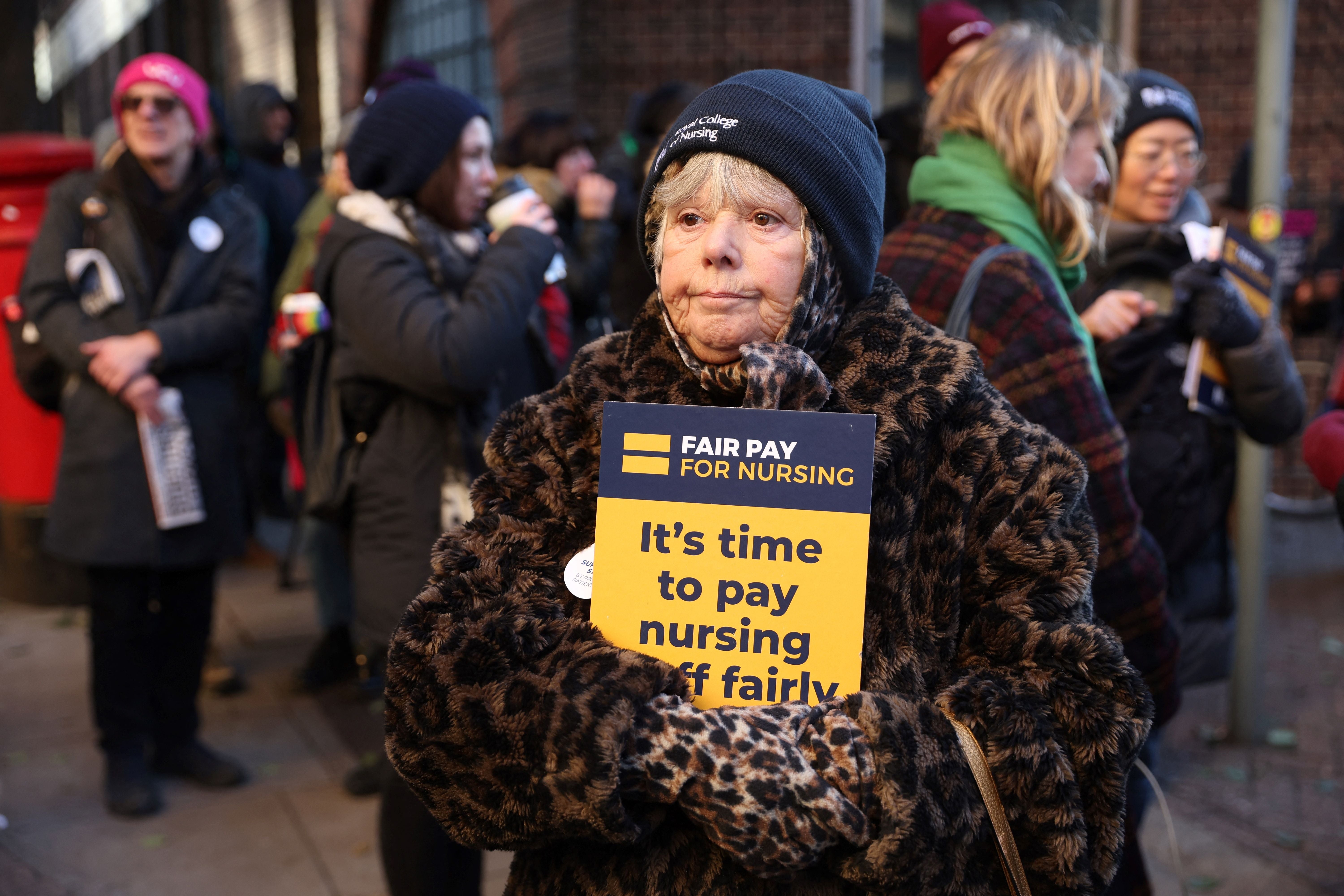New anti-strike laws won’t end well for Rishi Sunak
Creating martyrs out of striking nurses is a terrible strategy, says Sean O’Grady

Picture the scene: it is March, and splashed across websites, televisions, smartphones, newspapers and social media are a half-dozen emergency care nurses standing outside the hospital A&E where they used to work, and where their skills are still desperately needed by the patients inside, yards away. With them are some doctors who’ve been threatened with dismissal by their health trust because they refused to work to one of the new government-imposed “minimum service arrangements”. They are martyrs. National heroes. So are the leaders of the Royal College of Nurses and the British Medical Association, whose organisations face financial ruin because of punitive fines for non-cooperation in breaking their own strikes. Carers have been fired.
The doctors and nurses command huge public sympathy. Funds to support them during their campaign for reinstatement are flooding in on an embarrassingly generous scale. Petitions have been raised, marches and demos organised, and there is uproar in parliament. Steve Barclay is in hiding. The Tories face the start of the local election campaign with the railways, the hospitals and other public services still in chaos, and free trades unions deliberately bankrupted by a vindictive government that is too stubborn, lazy or incompetent to negotiate and settle a strike.
In this perfectly feasible scenario, guess what happens to the Tory vote on 3 May? This tableau illustrates the folly of relying too heavily on the law to solve political and economic problems. Ministers say other European countries have such laws, but generally they also have more trade union involvement in businesses and government, and such pacts will have been negotiated, not imposed.
Subscribe to Independent Premium to bookmark this article
Want to bookmark your favourite articles and stories to read or reference later? Start your Independent Premium subscription today.
Join our commenting forum
Join thought-provoking conversations, follow other Independent readers and see their replies